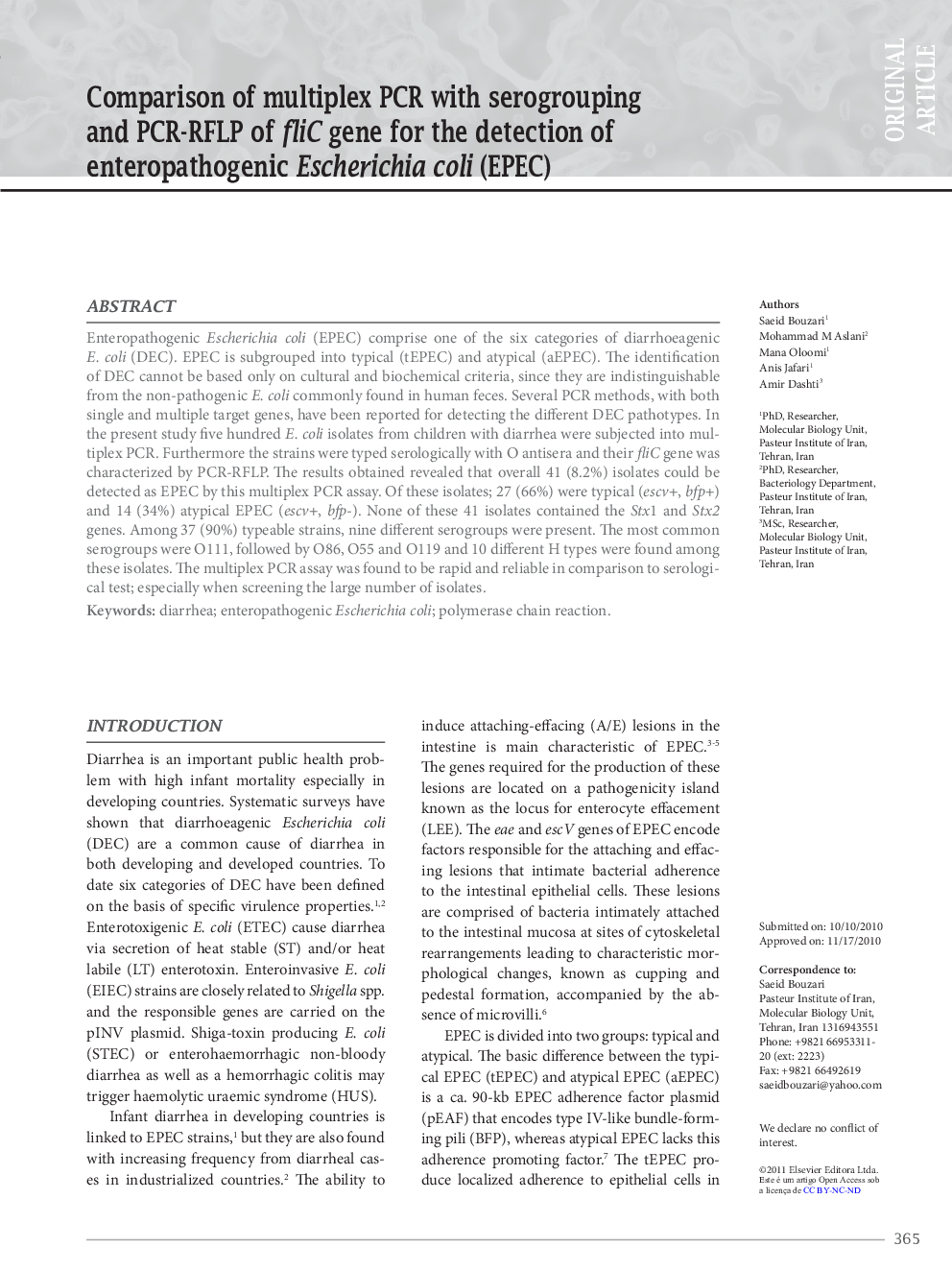| Article ID | Journal | Published Year | Pages | File Type |
|---|---|---|---|---|
| 3344517 | The Brazilian Journal of Infectious Diseases | 2011 | 5 Pages |
Enteropathogenic Escherichia coli (EPEC) comprise one of the six categories of diarrhoeagenic E. coli (DEC). EPEC is subgrouped into typical (tEPEC) and atypical (aEPEC). The identification of DEC cannot be based only on cultural and biochemical criteria, since they are indistinguishable from the non-pathogenic E. coli commonly found in human feces. Several PCR methods, with both single and multiple target genes, have been reported for detecting the different DEC pathotypes. In the present study five hundred E. coli isolates from children with diarrhea were subjected into multiplex PCR. Furthermore the strains were typed serologically with O antisera and their fliC gene was characterized by PCR-RFLP. The results obtained revealed that overall 41 (8.2%) isolates could be detected as EPEC by this multiplex PCR assay. Of these isolates; 27 (66%) were typical (escv+, bfp+) and 14 (34%) atypical EPEC (escv+, bfp-). None of these 41 isolates contained the Stx1 and Stx2 genes. Among 37 (90%) typeable strains, nine different serogroups were present. The most common serogroups were O111, followed by O86, O55 and O119 and 10 different H types were found among these isolates. The multiplex PCR assay was found to be rapid and reliable in comparison to serological test; especially when screening the large number of isolates.
